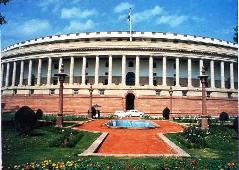 Every industry worth its name has a group of associations and lobbyists voicing their concern and expectations from the Budget and the Finance Minister.
Every industry worth its name has a group of associations and lobbyists voicing their concern and expectations from the Budget and the Finance Minister.
But the person who forms the bottom of the pyramid and supplies capital to the top of the pyramid by his purchasingactions has very little voice which is suppressed in the vociferousvoices of TV anchors, lobbyists and Selective editors. . .
This column is trying to add voice to the expectations of these unheard voices.
What a vegetable vendor expects from the Union Budget.
Be it a small shopkeeper or the road side cart pulling vendor, their expectations from any budget are simple -- ‘Help us to improve our business by being able to sell fresh vegetables/fruits to our customers’ -- in this one line, lies the entire essence of what they would want the FM to do.
Cold storage
The biggest challenge the stakeholders in the vegetable vending chainright from the farmer to the seller is how to reduce the 20-30 per cent wastage because of unavailability of proper storage facilities.
For some delicate vegetables/fruits like tomatoes -- this is even higher.
High wastage implies lower income which means that farmers have to sell produce at higher price which means the seller too has to sell it at higher prices.
The previous budget had mentioned impetus being given for storage facilities.
But not much has been seen.
The FM would be expected to give a major thrust to this sector by announcing government support to entrepreneurs wanting to start storage facilities or even setting up government run facilities.
The way the milk sector was revolutionised by co-operatives, something similar needs to be done for vegetables/fruits.
Better storage implies lesser wastage implies better prices for end customers!
Better access to farms
Storage facilities alone cannot solve the supply chain puzzle.
The farmers also need better access to taking their produce by road.
The FM would be expected to announce plans for improving the road networks connecting the small villages.
Although the government has done some exceptional work on connecting metros and big cities, there’sstill a lot that can be done for the village roads.
Scrap NREGA
Controversial though it may sound, the vegetable grower or the vegetable seller is badly affected because of the NREGA.
The intentions of the scheme are highly appreciated, but, what has happened at the farm level is that there is no labour available to work as farm hands and whatever labour is
Thus labour costs have shot up making it unviable for many small vegetable farmers to hire them. Allthis has added to the cost of the potato and other vegetables/fruits that reach the shop.
Allow FDI in vegetable industry
Albeit anti-FDI activists would have us believe that FDI is not good, the farmer and in turn the vegetable vendor would truly benefit from more competition.
A glaring example is the chain of ‘pazhamudircholais’ or vegetable supermarkets seen in most towns of Tamil Nadu -- these are monster sized vegetable shops whose coming into existence was expected to wipe out the small ticket vendor -- but what has actually happened is that they have invested into infrastructure and also become bulk purchasers.
This has in turn motivate many farmers to come back to growing vegetables/fruits.
More supply has helped reduce prices across the board for everyone including road side vegetable vendors. Another interesting aspect of this movement is that the road side vegetable vendor is able to procure and sell exotic vegetables/fruits like purple cabbages, broccoli etc.
As for the vegetable farmers this has also renewed interest in previously unused “wild”vegetables/fruits and green leafy veggies.
The expectation from the FM in the Budget would be to allow FDI and probably impose conditions in the same which ensures that there is large scale investment in infrastructure and facilities by multinationals in the vegetable chain.
Boards or developmental agencies for indigenous produce
The vegetable vendor would expect the government to set up promotional agencies on the lines of the Tea boards or Silk boards which promotethose products.
Similarly if indigenous varieties of vegetables/fruits are promoted, they could find a great demand inother parts of the country and the world as well.
More demand will create better profits and thus help bring down cost for end user.
Lack of good infrastructure has led to an ironic situation where a Londoner is able to enjoy delicious apples from Himachal Pradesh buta common man in Kerala has to eat preposterously expensive Washington apples.
Mr FM, please announce a long term strategy for the vegetable and fruit business.
With more and more numbers being added to the ‘strictly vegetarian’ population, the demand is set to increase.
Good strategically thorough moves can ensure that this industry takes a lead in the next phase of growth.











 © 2024 Rediff.com -
© 2024 Rediff.com -